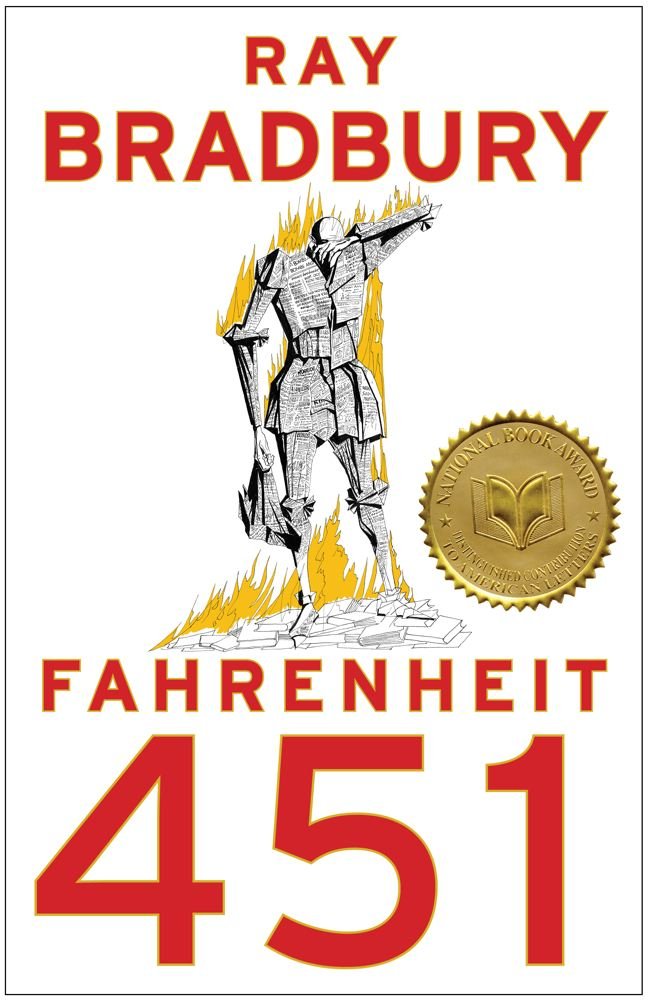 In a world where speed, noise and the latest in technology and entertainment supersedes compassion for one’s fellow man, how is it possible to preserve the essence of what makes us human?
In a world where speed, noise and the latest in technology and entertainment supersedes compassion for one’s fellow man, how is it possible to preserve the essence of what makes us human?
How much of life do we truly experience through a filter of ones and zeroes?
How accurate is society’s reflection through media portrayal?
These are some of the questions Fahrenheit 451 inspires. The novel, written in 1953, explored the possibility of an ironic societal disconnection and a grim evolution of humanity, brought about by advanced technology and the abandonment of the pastimes that once added depth to human existence. Eerily enough, the contemplation this novel stimulates only grows more pertinent with time as our own technology continues to advance at an astounding rate.
Fahrenheit 451 is set in a fast-paced society in which books are banned (and burned) and mindless entertainment is celebrated. Books aren’t the only treasures in jeopardy. The very aspects of knowledge, curiosity, and imagination are also on the pyre, waiting to be ignited. Life and happiness are as frail as the paper within the books that Montag and his fellow firemen (whose jobs aren’t to put out fires, but to set books alight) are tasked to burn into oblivion. Yet, according to society, life couldn’t be better or more exciting, even if the citizens can’t specifically pinpoint what makes them happy other than frivolous entertainment and empty conversations, that is, whenever people actually spoke to one another.
Montag soon finds himself conflicted when his curiosity is ignited by the very object he’s tasked to destroy. It’s not long before his curiosity puts him in danger and makes him a target for his comrades.
After revisiting Fahrenheit 451, I was reminded why the story remains a classic and Ray Bradbury a literary legend. I saw the world transform through Montag’s eyes and eventually it became obvious that it isn’t the world that changed, but rather his perspective of it. In many ways Fahrenheit 451, written in 1953, was prophetic and foreshadowed the emphasis of technology that is prevalent today. The situation between Montag and his wife Mildred is frustrating and tragic. The pair live in close proximity and yet couldn’t be further apart, as demonstrated by the fact that neither can recall how they met. And when tragedy befalls Montag’s eccentric nature-loving friend, Clarisse, who helped spark his curiosity, the news is nonchalantly broken to him as an afterthought.
This novel is so far ahead of its time. Keep in mind, it was written nearly four decades before the internet was created. Fahrenheit 451 is frighteningly similar to the shallow, self-absorbed reality in which we currently live. On a grand scale society is connected by technology, but are growing increasingly apathetic to anything that doesn’t affect them directly. Things have gotten so fast-paced that society has spawned generations of citizens who don’t have the patience to process their own feelings, and so they act out. Individuals are so easily upset, particularly by those with opinions that contradict their own. It leads me to wonder if someday it will truly become a social crime to exchange ideas and opinions at all, much like in Bradbury’s prophetic tale. Some days, it seems like we’re damn near halfway there.
Still, I hope that enough people remain conscious and that those who have become ensnared in the rapid pace of technology will eventually awaken as Montag did. I also hope that the Clarisses of the world hold onto their fascination with the simple joys of life, such as the sensation of a raindrop.
Feel free to chime in with your thoughts about Fahrenheit 451 in the comments. I hope you’ll join me tomorrow for my next banned/challenged book selection.
